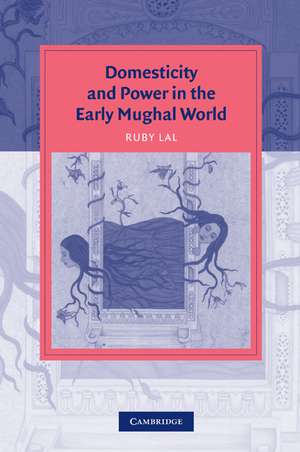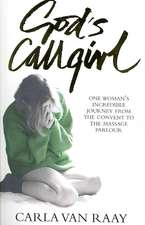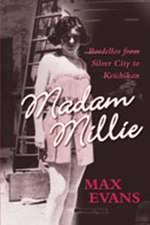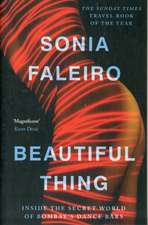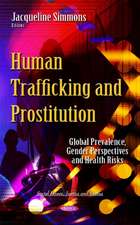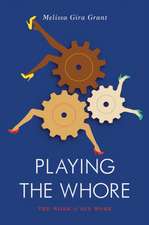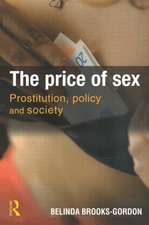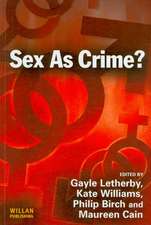Domesticity and Power in the Early Mughal World: Cambridge Studies in Islamic Civilization
Autor Ruby Lalen Limba Engleză Paperback – 21 sep 2005
| Toate formatele și edițiile | Preț | Express |
|---|---|---|
| Paperback (1) | 375.30 lei 43-57 zile | |
| Cambridge University Press – 21 sep 2005 | 375.30 lei 43-57 zile | |
| Hardback (1) | 694.58 lei 43-57 zile | |
| Cambridge University Press – 21 sep 2005 | 694.58 lei 43-57 zile |
Din seria Cambridge Studies in Islamic Civilization
-
 Preț: 199.99 lei
Preț: 199.99 lei - 14%
 Preț: 768.30 lei
Preț: 768.30 lei - 11%
 Preț: 695.06 lei
Preț: 695.06 lei -
 Preț: 233.11 lei
Preț: 233.11 lei - 19%
 Preț: 566.82 lei
Preț: 566.82 lei -
 Preț: 230.14 lei
Preț: 230.14 lei -
 Preț: 289.39 lei
Preț: 289.39 lei - 9%
 Preț: 591.82 lei
Preț: 591.82 lei -
 Preț: 281.30 lei
Preț: 281.30 lei -
 Preț: 185.26 lei
Preț: 185.26 lei - 14%
 Preț: 675.82 lei
Preț: 675.82 lei -
 Preț: 243.53 lei
Preț: 243.53 lei - 14%
 Preț: 680.53 lei
Preț: 680.53 lei -
 Preț: 295.58 lei
Preț: 295.58 lei -
 Preț: 328.80 lei
Preț: 328.80 lei -
 Preț: 417.25 lei
Preț: 417.25 lei - 11%
 Preț: 693.02 lei
Preț: 693.02 lei -
 Preț: 408.37 lei
Preț: 408.37 lei -
 Preț: 284.17 lei
Preț: 284.17 lei - 14%
 Preț: 770.83 lei
Preț: 770.83 lei -
 Preț: 335.34 lei
Preț: 335.34 lei -
 Preț: 326.94 lei
Preț: 326.94 lei -
 Preț: 286.51 lei
Preț: 286.51 lei - 14%
 Preț: 677.47 lei
Preț: 677.47 lei -
 Preț: 208.30 lei
Preț: 208.30 lei - 11%
 Preț: 641.31 lei
Preț: 641.31 lei - 11%
 Preț: 604.41 lei
Preț: 604.41 lei - 11%
 Preț: 690.27 lei
Preț: 690.27 lei -
 Preț: 371.83 lei
Preț: 371.83 lei -
 Preț: 324.53 lei
Preț: 324.53 lei - 11%
 Preț: 698.50 lei
Preț: 698.50 lei - 11%
 Preț: 693.36 lei
Preț: 693.36 lei -
 Preț: 207.74 lei
Preț: 207.74 lei -
 Preț: 362.17 lei
Preț: 362.17 lei - 11%
 Preț: 694.38 lei
Preț: 694.38 lei - 11%
 Preț: 690.46 lei
Preț: 690.46 lei - 11%
 Preț: 691.66 lei
Preț: 691.66 lei - 11%
 Preț: 694.23 lei
Preț: 694.23 lei -
 Preț: 389.50 lei
Preț: 389.50 lei -
 Preț: 370.46 lei
Preț: 370.46 lei -
 Preț: 422.96 lei
Preț: 422.96 lei
Preț: 375.30 lei
Nou
Puncte Express: 563
Preț estimativ în valută:
71.81€ • 75.17$ • 59.77£
71.81€ • 75.17$ • 59.77£
Carte tipărită la comandă
Livrare economică 31 martie-14 aprilie
Preluare comenzi: 021 569.72.76
Specificații
ISBN-13: 9780521615341
ISBN-10: 0521615348
Pagini: 260
Ilustrații: 6 b/w illus.
Dimensiuni: 152 x 229 x 15 mm
Greutate: 0.45 kg
Editura: Cambridge University Press
Colecția Cambridge University Press
Seria Cambridge Studies in Islamic Civilization
Locul publicării:Cambridge, United Kingdom
ISBN-10: 0521615348
Pagini: 260
Ilustrații: 6 b/w illus.
Dimensiuni: 152 x 229 x 15 mm
Greutate: 0.45 kg
Editura: Cambridge University Press
Colecția Cambridge University Press
Seria Cambridge Studies in Islamic Civilization
Locul publicării:Cambridge, United Kingdom
Cuprins
1. Introduction; 2. A genealogy of the Mughal haram; 3. The question of the archive: the challenge of a princess's memoir; 4. The making of Mughal court society; 5. Where was the haram in a peripatetic world?; 6. Settled, sacred, and all-powerful: the new regime under Akbar; 7. Settled, sacred, and 'incarcerated': the imperial haram; 8. Conclusion.
Recenzii
'Arguably this is the most important book to appear on Mughal history for a generation … Lal has rescued the engagement of women with the world from a patriarchal and orientalist historiography which hid it from view.' Francis Robinson, Royal Holloway, University of London
'Dr Lal's monograph is a highly imaginative study of family life under the first Mughal rulers of India based on a very sophisticated use of source material. It questions the received wisdom on life in the haram and opens up a very original line of enquiry into the role of women in the society and politics of the early Mughals. I feel sure that it will be received as a pathbreaking work.' Tapan Raychaudhuri, Emeritus Fellow, St Antony's College, Oxford
'This book is an original and signal contribution to the study of women, family, court cultures, and the politics of empires. By examining the shifting political contexts of the first three Mughal generations - of women and men - Ruby Lal demonstrates the evolution of a 'domestic' politics that lay at the heart of imperial self-fashioning.' Leslie Peirce, Professor of Ottoman Studies, University of California, Berkeley
'… we could not expect the book to be more inclusive. Jan-Peter Hartung's scholarly introduction to the book binds these diverse articles into a complete unit and his empathetic approach in comparing and analysing the Islamic education in various countries, leaves a positive imprint on the heart of the reader. … a sincere attempt to understand the history, working and objectives of madrasas in India.' Economic and Political Weekly
'… medieval Indian court … has emerged as an important field of study … The book under review is a valuable addition to this stream … comprehensive analysis of how contemporary European travelers viewed the Mughal haram … Ruby Lal studies the early Mughal haram in a meticulous and creative way … Discussing medieval culture, a historian should adopt a somewhat anthropological technique … The author manages this technique successfully … The author's main contribution and success in her study is in showing the institution of the Mughal haram as being fluid and responsive to the changing socio-political and cultural environment … equally skilful in delineating the social and emotional links within this haram world. Especially impressive is the research into the various roles of women, especially elder ones, in family and clan relations, and the political and religious life of the nascent empire … Pre-modern India is but rarely discussed by scholars as an integral part of a greater medieval world … comparative study of Mughal, Safavid and Ottoman harams … commendable indeed … this study will serve to inspire further questions and criticisms from readers, as a good piece of research should … well-written and thought-provoking work, a welcome addition to medieval Indian studies and useful reading for those interested in Mughal history and culture.' Journal of International Asian Studies
'One of the most significant contributions of this book is its attempt to place this history of the early Mughal household within the comparative context of Muslim imperial polities in early modern Asia.' The Medieval History Journal
'Dr Lal's monograph is a highly imaginative study of family life under the first Mughal rulers of India based on a very sophisticated use of source material. It questions the received wisdom on life in the haram and opens up a very original line of enquiry into the role of women in the society and politics of the early Mughals. I feel sure that it will be received as a pathbreaking work.' Tapan Raychaudhuri, Emeritus Fellow, St Antony's College, Oxford
'This book is an original and signal contribution to the study of women, family, court cultures, and the politics of empires. By examining the shifting political contexts of the first three Mughal generations - of women and men - Ruby Lal demonstrates the evolution of a 'domestic' politics that lay at the heart of imperial self-fashioning.' Leslie Peirce, Professor of Ottoman Studies, University of California, Berkeley
'… we could not expect the book to be more inclusive. Jan-Peter Hartung's scholarly introduction to the book binds these diverse articles into a complete unit and his empathetic approach in comparing and analysing the Islamic education in various countries, leaves a positive imprint on the heart of the reader. … a sincere attempt to understand the history, working and objectives of madrasas in India.' Economic and Political Weekly
'… medieval Indian court … has emerged as an important field of study … The book under review is a valuable addition to this stream … comprehensive analysis of how contemporary European travelers viewed the Mughal haram … Ruby Lal studies the early Mughal haram in a meticulous and creative way … Discussing medieval culture, a historian should adopt a somewhat anthropological technique … The author manages this technique successfully … The author's main contribution and success in her study is in showing the institution of the Mughal haram as being fluid and responsive to the changing socio-political and cultural environment … equally skilful in delineating the social and emotional links within this haram world. Especially impressive is the research into the various roles of women, especially elder ones, in family and clan relations, and the political and religious life of the nascent empire … Pre-modern India is but rarely discussed by scholars as an integral part of a greater medieval world … comparative study of Mughal, Safavid and Ottoman harams … commendable indeed … this study will serve to inspire further questions and criticisms from readers, as a good piece of research should … well-written and thought-provoking work, a welcome addition to medieval Indian studies and useful reading for those interested in Mughal history and culture.' Journal of International Asian Studies
'One of the most significant contributions of this book is its attempt to place this history of the early Mughal household within the comparative context of Muslim imperial polities in early modern Asia.' The Medieval History Journal
Notă biografică
Descriere
This 2005 book looks at domestic life and the place of women in the Mughal court of the sixteenth century.
